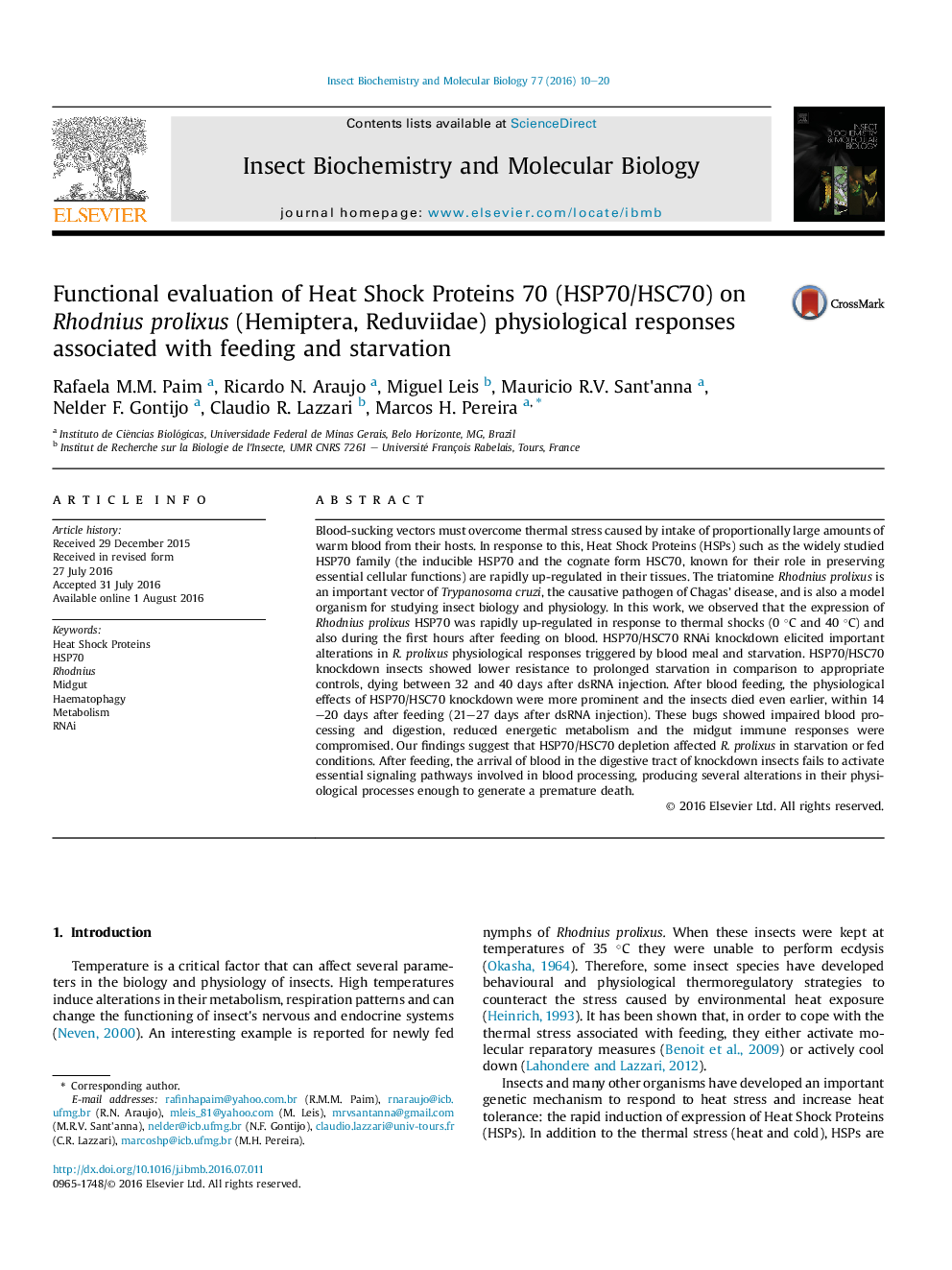| کد مقاله | کد نشریه | سال انتشار | مقاله انگلیسی | نسخه تمام متن |
|---|---|---|---|---|
| 1981921 | 1539475 | 2016 | 11 صفحه PDF | دانلود رایگان |
• Expression of HSP70 in Rhodnius prolixus was up-regulated in response to thermal stress.
• HSP70 depletion elicited important systemic alterations in R. prolixus after blood digestion.
• Blood processing and digestion were impaired, energetic metabolism was reduced and immune response genes were not activated.
• HSP70 knockdown led these insects to a premature death.
Blood-sucking vectors must overcome thermal stress caused by intake of proportionally large amounts of warm blood from their hosts. In response to this, Heat Shock Proteins (HSPs) such as the widely studied HSP70 family (the inducible HSP70 and the cognate form HSC70, known for their role in preserving essential cellular functions) are rapidly up-regulated in their tissues. The triatomine Rhodnius prolixus is an important vector of Trypanosoma cruzi, the causative pathogen of Chagas’ disease, and is also a model organism for studying insect biology and physiology. In this work, we observed that the expression of Rhodnius prolixus HSP70 was rapidly up-regulated in response to thermal shocks (0 °C and 40 °C) and also during the first hours after feeding on blood. HSP70/HSC70 RNAi knockdown elicited important alterations in R. prolixus physiological responses triggered by blood meal and starvation. HSP70/HSC70 knockdown insects showed lower resistance to prolonged starvation in comparison to appropriate controls, dying between 32 and 40 days after dsRNA injection. After blood feeding, the physiological effects of HSP70/HSC70 knockdown were more prominent and the insects died even earlier, within 14–20 days after feeding (21–27 days after dsRNA injection). These bugs showed impaired blood processing and digestion, reduced energetic metabolism and the midgut immune responses were compromised. Our findings suggest that HSP70/HSC70 depletion affected R. prolixus in starvation or fed conditions. After feeding, the arrival of blood in the digestive tract of knockdown insects fails to activate essential signaling pathways involved in blood processing, producing several alterations in their physiological processes enough to generate a premature death.
Figure optionsDownload high-quality image (230 K)Download as PowerPoint slide
Journal: Insect Biochemistry and Molecular Biology - Volume 77, October 2016, Pages 10–20
